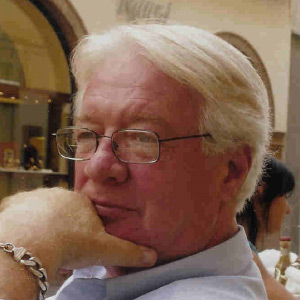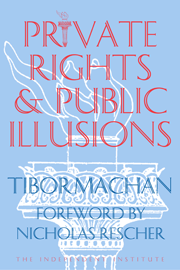America is a society that, at its roots, serves the people who populate it. Self-interest, broadly understood, is what justifies support for this country.
It is indeed because we not only have the right to but should pursue our happiness in life that we should also live in a country that the founders and framers designed, only make it more consistent.
Yet over the two centuries of its existence America has gradually changed from a community that was firmly headed toward a bona fide free society—for it did not start that way, clearly, what with slavery as one of its institutions—to one that is headed toward a mediocre egalitarianism.
Our legislators, justices, and, most of all, intellectuals have slowly but surely diverted the country from its original goal toward something entirely different. Whereas the guiding concept of this country used to be individual liberty, now it is some mish-mash of democratic egalitarianism, so that the whim of the public rules all, with no clear commitment to principles by any of the major political factions.
Consider the so-called Republican revolution. First, it was not a revolution. Republicans simply want less of the federal government in our lives, not necessarily less government, fewer laws, more individual initiative, and personal freedom. There are few actual budget cuts, only reductions of the anticipated rise in government expenditures. The Republicans lack a principled approach to politics and law making.
The Democrats know what they want, although they are a bit scared to spell it out. They want the government to run the country; they do not believe individuals can govern themselves; they believe that ultimately it is society that matters and individuals are just parts of society that may be manipulated to make society conform to a vision of cohesion, harmony, peace, cooperation, and fraternity. They cannot stand the fact that some of us spend money on Mike Tyson boxing bouts, others on Pogs, and yet others on Arnold Schwarzenegger movies—instead of helping one another, supporting our schools, orchestras, parks, forests, AIDS patients, and so forth.
The Democrats—or at least the philosophical leaders of the party—have a fantasy, a utopia that guides them. It is a bad one, it will never work, it is destructive, but it is much more consistent than what the Republicans have to offer.
The Republicans refuse to say what is true: that we each have the right to live our own lives, and we ought, in fact, try to live it well and prosperously, and anyone who tries to take this away from us, even for all those noble-sounding purposes the Democrats hold dear, are tyrants and we will not stand for this.
The Republicans will not say this, because the Republicans do not believe it. They also believe in the fraternal vision, only with a few minor changes. They want less welfare but more order; they want fewer federal programs but do not at all mind multiplying state programs; they want freedom but not when it comes to what one thinks (Do not kid yourself, there is political correctness within the ranks of conservative Republicans).
The birth of the United States of America was a revolution: It gave citizens political power, unseating the king. It made the individual the sovereign, not the state. It made government the servant, not to master. It made it evident, for the first time in human history, that life is for the living, for the people who will work hard and earn it, not those who have accidentally fallen into good fortune or conquered others and live off them as parasites.
This revolution is still going on, meeting with great reactionary forces in the guise of Marxism, communitarianism, environmentalism, and the like, all demanding that America abandon its commitment to individual rights, to the belief that each person ought first and foremost advance his life and the lives of those whom he loves.
None of the Republican presidential candidates, ultimately, defends the American vision. Everyone hedges his bets, down-playing the essential point, namely, that what counts most in American political tradition is the human individual, not even the family, let alone the ethnic group or race or gender. It is the individual. This is why millions want to come to America from abroad, this is what makes this country unique.
But this is the vision that is downplayed these days, even while there is a kind of window of opportunity—following the fall of the Soviet Union and the demise of the welfare state—to reassert and improve it.
Can We Reignite the Revolution?
Also published in Orange County Register
Tibor R. Machan (1939–2016) was a Research Fellow at the Independent Institute and the R.C. Hoiles Professor of Business Ethics and Free Enterprise at Chapman University
Constitutional LawFreedomGovernment and PoliticsLaw and LibertyPhilosophy and ReligionPolitical HistorySocialism, Communism, and Collectivism
Comments
Before posting, please read our Comment Policy.








